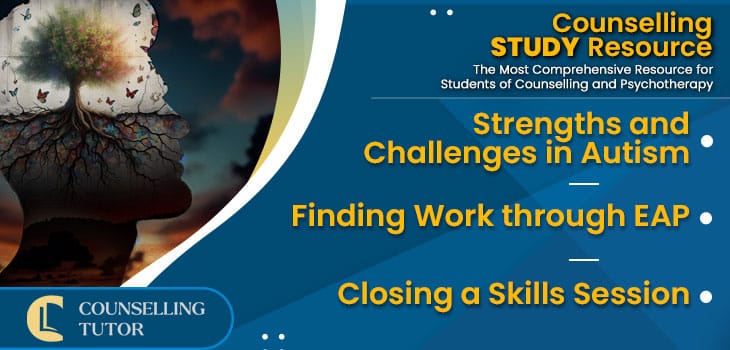See Counselling Skills Used in Real Sessions by Qualified Therapist
Real Sessions – Real Presentations – Real Skills
Gain the competence and confidence to use counselling techniques effectively!

In Episode 317 of the Counselling Tutor Podcast, your hosts Rory Lees-Oakes and Ken Kelly look at this week’s three topics:
Strengths and Challenges in Autism
There are some traits that are commonly seen in autistic people – these can be both strengths and challenges. In this section, Rory and Ken discuss some of the ways that acknowledging these strengths and challenges in autism within your practice can help when working with neurodivergent clients:

Real Sessions – Real Presentations – Real Skills
Gain the competence and confidence to use counselling techniques effectively!
In this week’s ‘Practice Matters’, Rory speaks with Sharon McCormick about how an ethical EAP operates and the benefits for both clients and employers.
The key points of this discussion include:

On-demand access to a rich lecture library covering theory, skills, and professional development for counselling students—Mapped to the UK awarding body criteria
“The Student Library has been BRILLIANT, I can’t recommend it enough!
It has been a lifeline in helping me prepare for practice and my first clients. If you’re considering it, go-for-it, it’s absolutely worth it!”
Kelly – Graduated and now in practice.
It can be tricky to know how to end a skills session. In this section, Rory and Ken discuss what to be mindful of when drawing a session to a close:
Autism Strengths and Challenges

Get on-demand Certified CPD that is implementable in your practice
